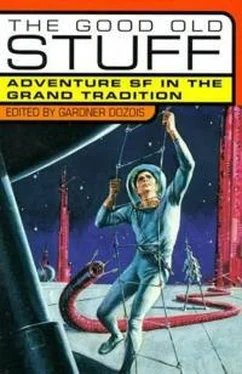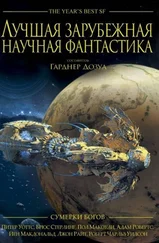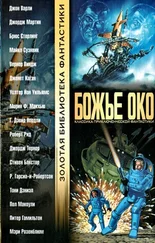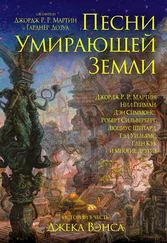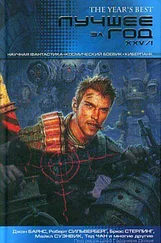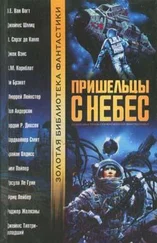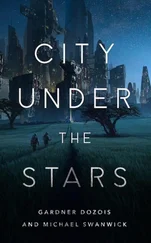Гарднер Дозуа - The Good Old Stuff
Здесь есть возможность читать онлайн «Гарднер Дозуа - The Good Old Stuff» весь текст электронной книги совершенно бесплатно (целиком полную версию без сокращений). В некоторых случаях можно слушать аудио, скачать через торрент в формате fb2 и присутствует краткое содержание. Год выпуска: 1998, ISBN: 1998, Издательство: St. Martin's Griffin, Жанр: Фантастика и фэнтези, на английском языке. Описание произведения, (предисловие) а так же отзывы посетителей доступны на портале библиотеки ЛибКат.
- Название:The Good Old Stuff
- Автор:
- Издательство:St. Martin's Griffin
- Жанр:
- Год:1998
- ISBN:0-312-19275-4
- Рейтинг книги:3 / 5. Голосов: 1
-
Избранное:Добавить в избранное
- Отзывы:
-
Ваша оценка:
- 60
- 1
- 2
- 3
- 4
- 5
The Good Old Stuff: краткое содержание, описание и аннотация
Предлагаем к чтению аннотацию, описание, краткое содержание или предисловие (зависит от того, что написал сам автор книги «The Good Old Stuff»). Если вы не нашли необходимую информацию о книге — напишите в комментариях, мы постараемся отыскать её.
The Good Old Stuff — читать онлайн бесплатно полную книгу (весь текст) целиком
Ниже представлен текст книги, разбитый по страницам. Система сохранения места последней прочитанной страницы, позволяет с удобством читать онлайн бесплатно книгу «The Good Old Stuff», без необходимости каждый раз заново искать на чём Вы остановились. Поставьте закладку, и сможете в любой момент перейти на страницу, на которой закончили чтение.
Интервал:
Закладка:
Prime said tonelessly, “I have remarked this phenomenon and have thought much on it. Prime’s commands are promulgated in such a way as to exert subtle rather than overt influence; perhaps here is the background of the matter. In any event, the fact of this influence is even more reason to select for the office a man of demonstrated virtue.”
“Well put,” said the Chief Elder. “Your character is indeed beyond reproach. However, we of the Elders are concerned by the rising tide of authoritarianism among the planets of the galaxy. We suspect that this principle of resonance is at work. You are a man of intense and indomitable will, and we feel that your influence has unwittingly prompted an irruption of autarchies.”
Prime was silent a moment. He looked down the line of couches where the other candidates were recovering awareness. They were men of various races: a pale Northkin of Palast, a stocky red Hawolo, a gray-haired gray-eyed Islander from the Sea Planet—each the outstanding man of the planet of his birth. Those who had returned to consciousness sat quietly, collecting their wits, or lay back on the couch, trying to expunge the test from their minds. There had been a toll taken: one lay dead, another bereft of his wits crouched whimpering beside his couch.
The Chief Elder said, “The objectionable aspects of your character are perhaps best exemplified by the test itself.”
Prime opened his mouth; the Chief Elder held up his hand. “Let me speak; I will try to deal fairly with you. When I am done, you may say your say.
“I repeat that your basic direction is displayed by the details of the test that you devised. The qualities you measured were those which you considered the most important: that is, those ideals by which you guide your own life. This arrangement I am sure was completely unconscious, and hence completely revealing. You conceive the essential characteristics of the Prime to be social intuition, aggressiveness, loyalty, imagination, and dogged persistence. As a man of strong character you seek to exemplify these ideals in your own conduct; therefore it is not at all surprising that in this test, designed by you, with a scoring system calibrated by you, your score should be highest.
“Let me clarify the idea by an analogy. If the Eagle were conducting a test to determine the King of Beasts, he would rate all the candidates on their ability to fly; necessarily he would win. In this fashion the Mole would consider ability to dig important; by his system of testing he would inevitably emerge King of Beasts.”
Prime laughed sharply, ran a hand through his sparse red-brown locks.
“I am neither Eagle nor Mole.”
The Chief Elder shook his head. “No. You are zealous, dudful, imaginative, indefadgable—so you have demonstrated, as much by specifying tests for these characteristics as by scoring high in these same tests. But conversely, by the very absence of other tests you demonstrate deficiencies in your character.”
“And these are?”
“Sympathy. Compassion. Kindness.” The Chief Elder settled back in his chair. “Strange. Your predecessor two times removed was rich in these qualities. During his term, the great humanitarian systems based on the idea of human brotherhood sprang up across the universe.
Another example of resonance—but I digress.”
Prime said with a sardonic twitch of his mouth, “May I ask this: have you selected the next Galactic Prime?”
The Chief Elder nodded. “A definite choice has been made.”
“What was his score in the test?”
“By your scoring system—seventeen eighty. He did poorly as Arthur Caversham; he tried to explain the advantages of nudity to the policeman. He lacked the ability to concoct an instant subterfuge; he has little of your quick craft. As Arthur Caversham he found himself naked. He is sincere and straightforward, hence tried to expound the positive motivations for his state, rather than discover the means to evade the penalties.”
“Tell me more about this man,” said Prime shortly.
“As Bearwald the Halforn, he led his band to the hive of the Brands on Mount Medallion, but instead of burning the hive, he called forth to the queen, begging her to end the useless slaughter. She reached out from the doorway, drew him within and killed him. He failed—but the computer still rated him highly on his forthright approach.
“At Therlatch, his conduct was as irreproachable as yours, and at the Imagicon his performance was adequate. Yours approached the brilliance of the Master Imagists, which is high achievement indeed.
“The Rac tortures are the most trying element of the test. You knew well you could resist limitless pain; therefore you ordained that all other candidates must likewise possess this attribute. The new Prime is sadly deficient here. He is sensitive, and the idea of one man intentionally inflicting pain upon another sickens him. I may add that none of the candidates achieved a perfect count in the last episode.
Two others equaled your score—” Prime evinced interest. “Which are they?”
The Chief Elder pointed them out—a tall hard-muscled man with rock-hewn face standing by the alabaster balustrade gazing moodily out across the sunny distance, and a man of middle age who sat with his legs folded under him, watching a point three feet b before him with an expression of imperturbable placidity.
“One is utterly obstinate and hard,” said the Chief Elder. “He refused to say a single word. The other assumes an outer objectivity when unpleasantness overtakes him. Others among the candidates fared not so well; therapy will be necessary in almost all cases.”
Their eyes went to the witless creature with vacant eyes who padded up and down the aisle, humming and muttering quietly to himself.
“The tests were by no means valueless,” said the Chief Elder. “We learned a great deal. By your system of scoring, the competition rated you most high. By other standards which we Elders postulated, your place was lower.”
With a tight mouth, Prime inquired, “Who is this paragon of altruism, kindliness, sympathy, and generosity?”
The lunatic wandered close, fell on his hands and knees, crawled whimpering to the wall. He pressed his face to the cool stone, stared blankly up at Prime. His mouth hung loose, his chin was wet, his eyes rolled apparently free of each other.
The Chief Elder smiled in great compassion; he stroked the mad creature’s head. “This is he. Here is the man we select.”
The old Galactic Prime sat silent, mouth compressed, eyes burning like far volcanoes.
At his feet the new Prime, Lord of Two Billion Suns, found a dead leaf, put it into his mouth and began to chew.
That Share Of Glory
C. M. Kornbluth
The late C. M. Kornbluth first started selling stories as a teenage prodigy in 1940, making his first sale to Super Science Stories , and wrote vast amounts of pulp fiction under many different pseudonyms in the years before World War II, most of it unknown today. Only after the war, in the booming SF scene of the early ‘50s, did Kornbluth begin to attract some serious attention. As a writer, C. M. Kornbluth first came to widespread prominence with a series of novels written in collaboration with Frederik Pohl, including The Space Merchants (one of the most famous SF novels of the ‘50s), Gladiator-at-Law (a book that comes to seem less and less like a satire every time you turn on your television set), Search the Sky , and Wolfbane (perhaps the best of the Pohl/Kornbluth novels, and decades ahead of its time in its depiction of humans forced to function as plug-in component parts in an organic alien computer); he also produced two fairly routine novels in collaboration with Judith Merril as “Cyril Judd,” Outpost Mars and Gunner Cade , that were moderately well-received at the time but largely forgotten today, as well as two long-forgotten mainstream novels in collaboration with Pohl. As a solo writer—in addition to several mainstream novels under different pseudonyms—he produced three interesting but largely unsuccessful novels ( Not This August , a Cold War saga about the military conquest of the United States by the USSR, The Syndic , a caustic but ultimately somewhat lightweight Galaxy -style satire of a future America run by gangsters, and, the weakest of the lot, Takeoff , a then-theoretical novel about the conquest of space), but they had little impact on the SF world of the day.
Читать дальшеИнтервал:
Закладка:
Похожие книги на «The Good Old Stuff»
Представляем Вашему вниманию похожие книги на «The Good Old Stuff» списком для выбора. Мы отобрали схожую по названию и смыслу литературу в надежде предоставить читателям больше вариантов отыскать новые, интересные, ещё непрочитанные произведения.
Обсуждение, отзывы о книге «The Good Old Stuff» и просто собственные мнения читателей. Оставьте ваши комментарии, напишите, что Вы думаете о произведении, его смысле или главных героях. Укажите что конкретно понравилось, а что нет, и почему Вы так считаете.
